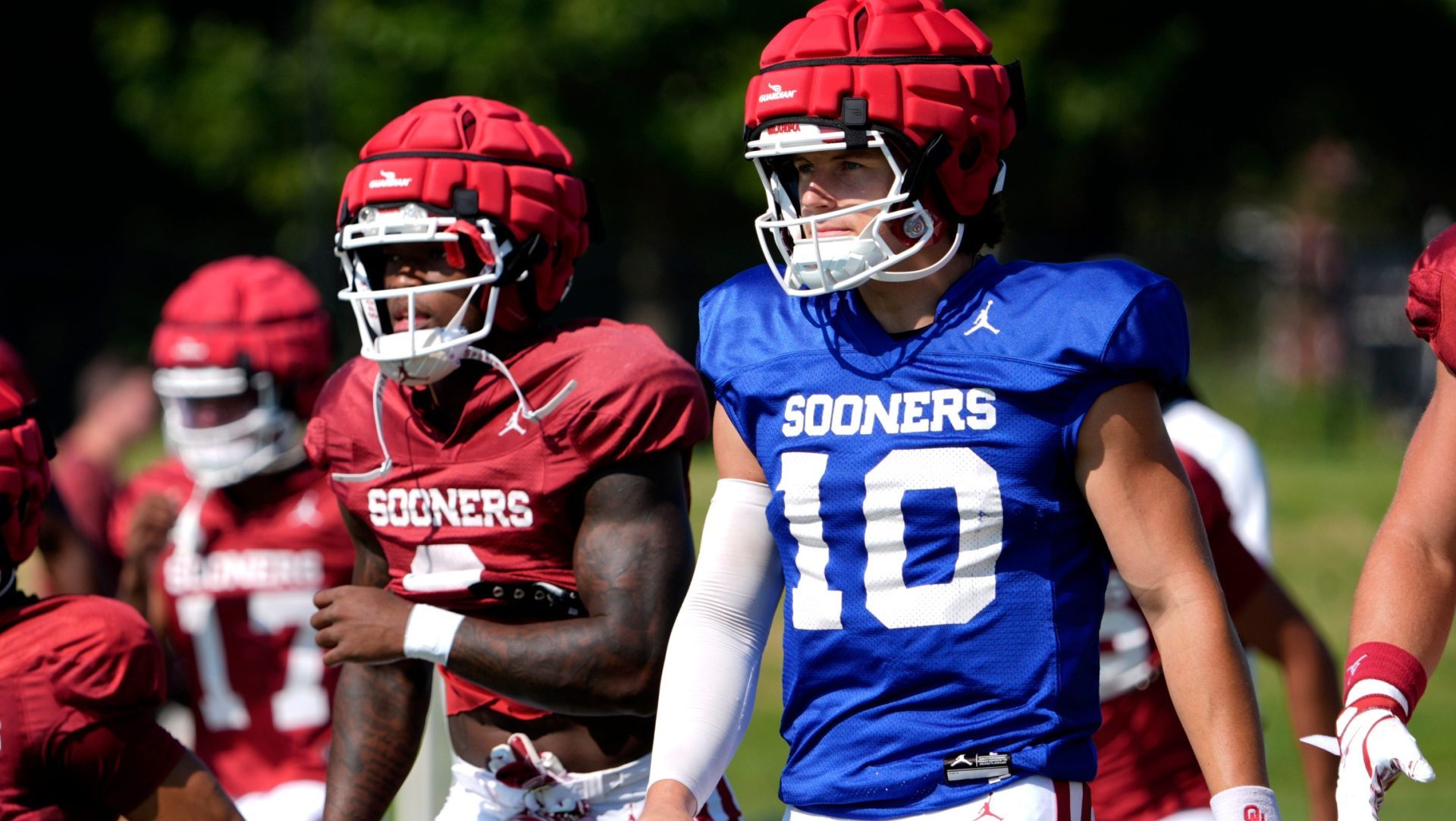Oklahoma quarterback John Mateer was the subject of a lot of scrutiny after his Venmo history was made public this week. Screenshots surfaced on social media of his transactions labeled “sports gambling” from when he was a freshman at Washington State in 2022.
Mateer, who transferred to Oklahoma last December, issued a statement Tuesday denying he had bet on college football: “My previous Venmo descriptions did not accurately portray the transactions in question but were instead inside jokes between me and my friends. I have never bet on sports. I understand the seriousness of the matter, but recognize that, taken out of context, those Venmo descriptions suggest otherwise.”
College athletes are prohibited from betting on sports; doing so can result in severe penalties.
Mateer’s Venmo history shined a spotlight on him and the possibility of gambling rule violations, but it also raised the issue of players’ questionable cybersecurity practices. Front Office Sports spoke with experts who say athletes should lock these types of apps down.
“Public financial transaction histories, even when they seem innocuous, can reveal sensitive behavioral data,” Roman Yampolskiy, director of the cybersecurity laboratory at the University of Louisville, tells FOS. “For high-profile athletes, these records can expose patterns of spending, locations, and relationships, making them targets for scams, blackmail, or unwanted public scrutiny.”
Yampolskiy added that because they operate under strict compliance rules, NCAA athletes should take special care to keep their financial transactions private. Venmo requires users to include a note about the payment they’re making (for example, “coffee” or “Uber”), and if the user’s profile isn’t set to private, there’s potential to “create the perception, or evidence, of rule violations. This is not just a privacy matter; it’s a reputational and career risk management issue,” he says.
Mateer’s screenshots started a domino effect across college football, with fans going down the rosters of teams and posting players’ Venmo transactions. Many players immediately made their accounts private or deleted them entirely.
Vahid Behzadan, associate professor in the Tagliatela College of Engineering at the University of New Haven, recommends colleges institute a peer-to-peer privacy policy for students that includes:
- Default accounts to “private” for transactions and friend lists.
- Educate athletes about avoiding jokes, slang, or emojis that could be misinterpreted as violations.
- Require athletes to review their privacy settings each season.
Oklahoma, Oklahoma State, Ohio State, North Carolina State, Texas Tech, and South Carolina tell FOS that they don’t have a privacy policy for digital transaction apps such as Venmo.
The SEC and Washington State did not respond to requests for comment.
“It’s a stark reminder of how quickly a digital ‘paper trail’ can spiral out of control,” Behzadan says. “What might seem like casual or humorous labeling among friends can take on an entirely different meaning when viewed by a national audience.”





![[Subscription Customers Only] Jul 13, 2025; East Rutherford, New Jersey, USA; Chelsea FC midfielder Cole Palmer (10) celebrates winning the final of the 2025 FIFA Club World Cup at MetLife Stadium](https://frontofficesports.com/wp-content/uploads/2026/02/USATSI_26636703-scaled-e1770932227605.jpg?quality=100&w=1024)











